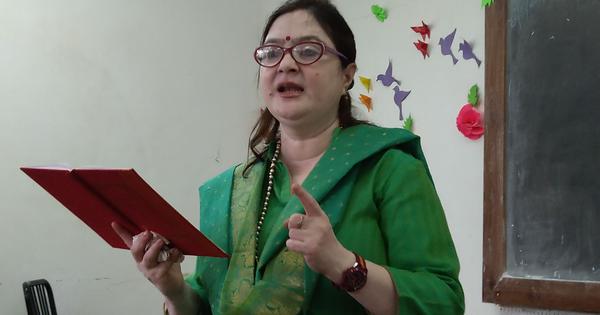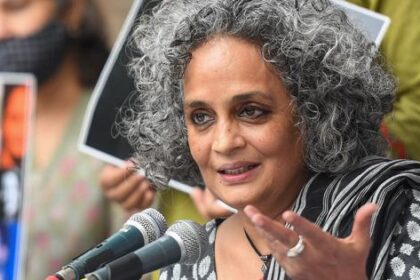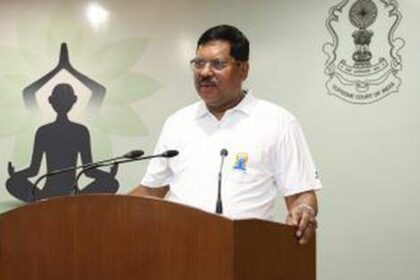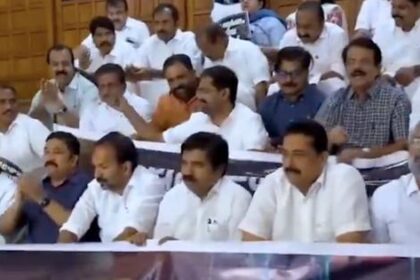Ranu Uniyal’s poetry navigates loss, grief, and the resilience found in language and love.
Ranu Uniyal’s poetry uniquely combines metapoetic artistry with deep emotional resonance. In her fourth collection,
This Could Be a Love Poem for You
, Uniyal confronts the profound sense of loss that permeates her daily life. While some of her most poignant poems reflect on the death of her mother, this personal grief evolves into a broader exploration of mortality, revealing an underlying awareness of her own transient existence. Her mother served as a crucial influence, guiding her to embrace her individuality and nurturing her aspirations. The depth of Uniyal’s sorrow at her mother’s passing is accompanied by an internal struggle—acknowledging the part of herself that fades away with the loss of loved ones.
One of the poems, titled “I Cannot Answer,” delves into her fears of facing an uncertain future marked by Alzheimer’s or a solitary funeral, yet she clings to the essence of life. Grief manifests throughout her work, personified as a persistent stalker that haunts her despite the passage of time. Even on “good days,” when she experiences a fleeting sense of relief, the specter of grief looms large, leaving her apprehensive about its inevitable return. In “Grief,” she articulates how her sorrow transforms into elegy when expressed in writing, highlighting the metapoetic engagement with the genre while retaining the raw intensity of unrelieved grief.
The collection also reflects the impact of the pandemic, with poems like “Lockdown Sunday Menu,” which illustrates how confinement led her to explore various poetic forms, including villanelles, free verse, and sonnets. Although free verse is the predominant style, the collection showcases polished craftsmanship in the mournful villanelle “An April to Remember.” The playful use of rhyme appears in “Jill on the Hill,” which offers a feminist reinterpretation of a nursery rhyme. This poem, along with others, addresses women’s issues, expanding from personal narratives to encompass broader societal concerns.
Another significant piece, “Be a Good Girl,” begins by listing societal expectations of women before shifting dramatically to enumerate the horrific fates that await them, including violence and oppression. In prose poems like “The Audacity of Living” and “Why Do I Write?”, Uniyal presents a female persona grappling with a harsh reality, yet refusing to succumb, finding strength in the power of song. The act of writing itself becomes an assertion of resistance against personal trauma.
The theme of stitching recurs throughout the collection, symbolizing the healing of wounds and dreams. In “If Only,” she references the myth of Nachiketa and Yama, advocating for the acceptance of unstitched wounds. The notion of stitching evolves in later poems, such as “To You I Surrender,” where love becomes a thread that binds, and “From a Woman in Love,” where she engages in literal stitching, juxtaposing traditional poetic forms with contemporary experiences.
Unial’s reflections on mortality in “The Eternal Truth” illustrate the inescapability of death, suggesting that existence is tightly interwoven with language. The tone of the collection, while often marked by loss, is also tempered by moments of kindness. Uniyal’s relationship with her disabled son serves as a poignant example, as she acknowledges her shortcomings but also celebrates the unwavering faith he provides. This confessional poetry invites readers into an intimate emotional dialogue, challenging preconceived notions and encouraging empathy.
From the outset, the collection establishes a dialogic quality, as seen in the opening poem, where Uniyal navigates her complex relationship with the English language. Through the interplay of faith and doubt, grief and hope, the poems reveal a provisional quality. Ultimately,
This Could Be a Love Poem for You
stands out for its ability to articulate raw emotions, inviting readers to share in the tentative fragments of human experience without offering easy resolutions.








